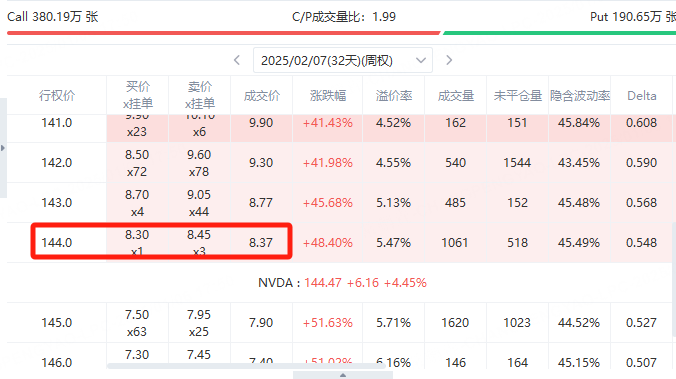Following NVIDIA CEO Jensen Huang’s confirmation in June 2024 that the company will begin designing ASIC chips, recent industry reports reveal that NVIDIA has chosen Taiwan as the base for its ASIC design and R&D center, launching an aggressive talent recruitment initiative.
Market data indicates that NVIDIA’s foray into ASIC development is accelerating. In Taiwan, NVIDIA has been actively recruiting senior engineers specializing in areas such as front-end design verification, IP integration, and physical layer design. Many engineers have already been poached. What makes NVIDIA particularly attractive to talent is its competitive compensation package, which includes Restricted Stock Units (RSUs). Given the company’s stock price gains of 239% and 180% in 2023 and 2024 respectively, RSUs have yielded far greater returns than base salaries.
Thanks to the rise of generative AI (GenAI), NVIDIA has successfully transformed from a leader in gaming GPUs to the "powerhouse of computational capability" in the AI industry. However, its dominant market position has also prompted global tech giants and cloud service providers (CSPs) to explore alternatives, making ASICs the new focal point. Broadcom’s stellar ASIC profit report for fiscal year 2024, released in December, further validates this trend. To counter this collective competitive move, NVIDIA has decided to directly enter the ASIC market to maintain its competitive edge.
Jensen Huang has stated that entering the ASIC business not only broadens NVIDIA's customer base but also leverages its ecosystem's low costs and rich resources to outcompete potential rivals. While CSPs have been attempting to develop their own ASICs, NVIDIA’s strategic layout clearly reflects strong confidence in its future market positioning.
Leveraging the Call Spread Strategy for NVIDIA
As NVIDIA accelerates its efforts in the ASIC market, its stock volatility may increase. Investors can use the Call Spread strategy to short NVIDIA and potentially profit from a market pullback. Here's how the strategy is structured:
Strategy Components
Sell: A call option expiring on February 7, with a $160 strike price, and a premium of $280.
Buy: A call option expiring on February 7, with a $144 strike price, and a premium of $837.
Strategy Cost and Potential Profit
Net Premium Paid:
Premium paid for buying the call ($837) - Premium received for selling the call ($280) = $557.Maximum Profit:
Strike price difference ($160 - $144) × 100 shares - Net premium paid = ($1,600 - $557) = $1,043.Maximum Loss:
Net premium paid = $557, which is the strategy's total cost.
Profit and Loss Analysis
If NVIDIA’s stock price is below $144 at expiration, both options expire worthless, and the investor loses the $557 premium paid.
If the stock price is between $144 and $160, the strategy’s profit increases as the stock price rises.
At $160, the strategy reaches its maximum profit of $1,043.
If the stock price exceeds $160, the profit remains capped at $1,043, with no additional losses.
Suitable Scenarios
This strategy is ideal for investors who anticipate that NVIDIA’s stock price will decline or stay within a lower range. Compared to directly shorting the stock or buying a put option, a Call Spread offers controlled risk and relatively lower costs.
By employing this strategy, investors can effectively manage risk while seizing opportunities amidst market fluctuations. Given the potential adjustments in NVIDIA’s stock, this strategy stands out as a compelling choice.

Comments